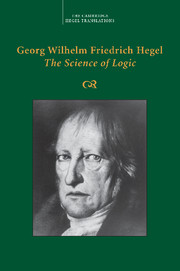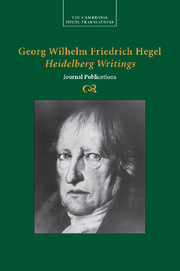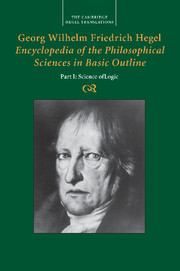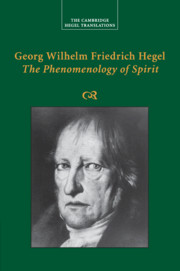Georg Wilhelm Friedrich Hegel: The Science of Logic
This translation of The Science of Logic (also known as 'Greater Logic') includes the revised Book I (1832), Book II (1813) and Book III (1816). Recent research has given us a detailed picture of the process that led Hegel to his final conception of the System and of the place of the Logic within it. We now understand how and why Hegel distanced himself from Schelling, how radical this break with his early mentor was, and to what extent it entailed a return (but with a difference) to Fichte and Kant. In the introduction to the volume, George Di Giovanni presents in synoptic form the results of recent scholarship on the subject, and, while recognizing the fault lines in Hegel's System that allow opposite interpretations, argues that the Logic marks the end of classical metaphysics. The translation is accompanied by a full apparatus of historical and explanatory notes.
- Includes a substantial introductory study that places Hegel's Logic in an historical and conceptual context
- Explains key terms and translations
- Sets the text out in a clear and accessible manner, including Hegel's own style points, making it easier to read
Reviews & endorsements
"...The Science of Logic is a very provocative and interesting book, inspiring
thinking in directions not thought before."
--George Lăzăroiu, PhD, Institute of Interdisciplinary Studies in
Humanities and Social Sciences, New York, Analysis and Metaphysics
Product details
September 2010Adobe eBook Reader
9780511784590
0 pages
0kg
This ISBN is for an eBook version which is distributed on our behalf by a third party.
Table of Contents
- Acknowledgments
- List of abbreviations
- Introduction
- Notes on the translation
- The Science of Logic: Preface to the first edition
- Preface to the second edition
- Introduction
- Book I. The doctrine of being
- Book II. Essence
- Book III. The doctrine of the concept
- Appendix. Hegel's logic in its revised and unrevised parts
- Bibliography
- Index.






